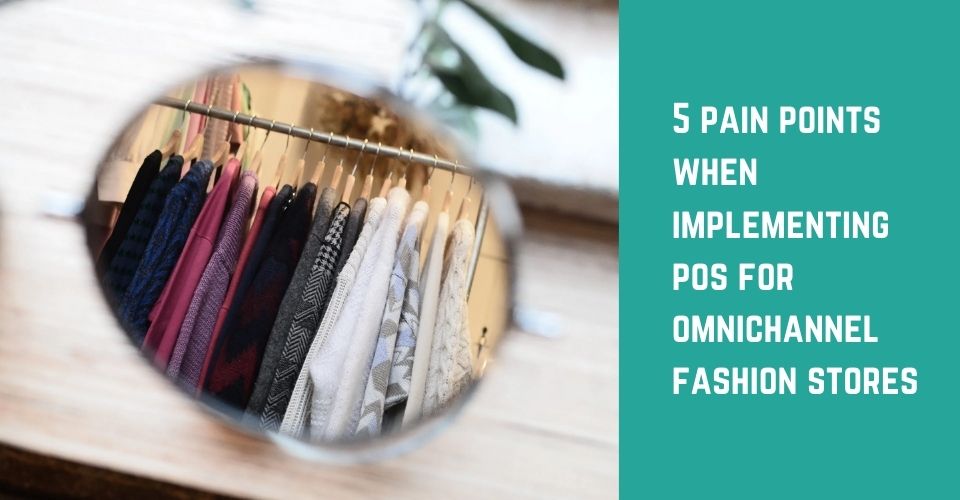Despite the impact of COVID-19, the fashion industry is still thriving day by day thanks to the timely adaptations to the new shopping behaviors. Customers now prefer to look for items online or combine digital platforms into their shopping experience. As a result, many fashion retailers have found ways to offer an omnichannel experience for their buyers. One of the most popular ways is implementing a POS system. Therefore, this blog will discuss 5 challenges that omnichannel fashion stores usually face, so that you can understand more about this process and gain some lessons for yourself.
Overview
Connect the online and offline shopping experience
One of the most popular challenges for omnichannel fashion brands is the connection between their different selling platforms. As stores continue to expand virtually, owners have to make sure that customers’ shopping experiences can move seamlessly from one place to another.

Let’s take curbside pickup as an example. Research has shown that up to 45% of shoppers nowadays buy online and pick up in store due to its great flexibility. To support this increasing demand, retailers have to implement a POS that can save and process the data across different channels. You definitely want to prevent this scenario: Customers come to the store to pick up their purchased item, just to find out that it has been out-of-stock. In this case, it might be useful to look for an omnichannel fashion POS with real-time synchronization and click-and-collect features.
Monitor seasonal inventory
The fashion industry is constantly changing. New trends and collections are coming out monthly and even weekly. As a fashion retailer, you have to make sure that the items in your store are updated and trendy enough to attract customers. However, reality might not always be as we expected. Many fashion stores end up having many clothes that stay on the shelves for too long. Being out of trend, they are very difficult to sell.

Some POS systems, however, are unable to fore-warn retailers about these omnichannel fashion challenges. They can only save the data input and respond to the actions retailers make with the system. Therefore, you should try having a POS with more powerful inventory management tools, such as stocktake, stockout alerts, or inventory reports.
Handle different product variants
Omnichannel fashion store owners often face challenges regarding the big number of product variants, ranging from styles, sizes to colors. They can easily fall out of control without an organized omnichannel fashion POS that stores and categorizes different items.

The solution to this problem is quite straightforward. However, it should be implemented as soon as possible to prevent future mistakes that cause revenue losses. You should have a POS that supports configurable products with the ability to add, remove, or delete different attributes. In addition, it can also be useful to have a POS that can be directly integrated with your existing eCommerce store.
►►►► Please visit our products: digital banking, situation analysis, Shopify markets, supply chain operations management, fintech ai, Multi Store POS, Woocommerce POS, Mobile POS, White label POS, Reseller POS, Beauty Supply Store POS, POS System for Retail and Vape shop POS
Handle customer data
With a POS system for an omnichannel fashion store, users can save a large amount of customer data. They can be either from online or offline orders. This is a valuable asset that fashion companies should handle with security and careful thought. On the one hand, some companies lost this data to hackers and scammers. On the other hand, others have implemented creative ways to provide personalized shopping experiences based on customers’ past purchases. This is why customer data in the omnichannel fashion POS can be both challenges and opportunities for retailers, so choose wisely.
Accept increased costs

Having an omnichannel POS with excellent features for fashion stores can lead to an increase in cost. This is reasonable because you are expanding your store and using the latest technologies. Therefore, businesses should be prepared for this by specifying their budget from the start. Many POS providers nowadays offer different pricing options according to the features you will receive. To choose a pricing plan for yourself, it can be useful to ask: What are the operations that should be improved, and how can POS help you with it?
Conclusion
Challenges can be converted into opportunities if you understand the problems and come up with suitable solutions. We hope that this blog about the omnichannel challenges for fashion above can help you find yourself in it and solve the problems soon.
If you are still finding the missing piece to your POS, you can consider ConnectPOS with excellent omnichannel features that can solve your pain points. Contact us today for more information about how it works!
